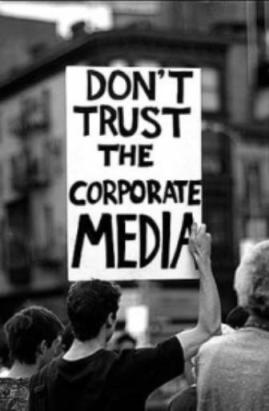Popular Discontent Grows with German Media Lies in Ukraine Crisis

An unprecedented wave of anti-Russian propaganda has dominated the German media in the wake of the US- and German-backed coup in Kiev. Leading publications such as Der Spiegel, Die Zeit, Süddeutsche Zeitun g and Frankfurter Allgemeine Zeitung, but also so-called “alternative” media outlets such as the taz (which has close links to the Greens) are loudly demanding military action against Russia, outdoing one another with menacing attacks on Russian President Vladimir Putin who they describe as a new Hitler and aggressor.
This propaganda campaign, reminiscent of the conformist press of totalitarian dictatorships, has so far had a limited effect. Many readers are repulsed by the campaign and have responded angrily. This is reflected in the letters pages of newspaper and online comment pages.
On 19 March the editorial office of the Berliner Zeitung was forced to admit: “German newspapers and radio stations have received bags of letters and readers’ comments complaining about one-sided reporting. Russia’s intervention in the Crimea has been met with a great deal of understanding. The German media, on the other hand, is accused of conducting an anti-Russian campaign.”
Even the conservative Berliner Tagesspiegel noted that 80 percent of the 12,000 readers who took part in an on-line survey regarded official criticism of Moscow as “hypocritical”. A mere 4 percent favored “military intervention by NATO,” or Russia’s exclusion from the G8.
A poll by the ARD television channel, released in early March, found that 82 percent of respondents were against the use of military force against Russia. Two-thirds rejected economic sanctions against Russia.
In letters and comments to editorial offices, many readers and radio listeners refer to the active role played by the US, EU and Berlin on Independence Square, which led to the coup against the elected government in Kiev.
A reader of the Münchener Merkur comments: “In my opinion, the demonstrations in Kiev, with Klitschko to the fore, are controlled logistically and financially by the West (i.e. US and Europe) – the former Treasury Secretary of US President Reagan referred to $5 billion. Since the reintroduction of capitalism in Eastern Europe the US has sought to weaken and isolate Russia, and eliminate it as a superpower.”
The comment continues: “The US and EU have now brought the Baltic States and almost all of the countries of the former Eastern Bloc into NATO and the EU. Now they are going to move ahead with the proposed admission of Ukraine, up to the western border of Russia, and provoke the Russian Black Sea Fleet.”
Many readers are disgusted with the trivialisation of the role of the fascist Svoboda party, and the assertion that the events in Kiev’s Independence Square had something to do with democracy. A number of reports and YouTube videos available on the Internet clearly reveal the role played by ultra-violent fascist forces.
On 10 March the Münchener Merkur published a comment by Dr. K.H.B. who wrote: “The first casualty of war is the truth. It is war, and therefore I believe neither the Russian mainstream press, including state television, nor ours.”
Another reader is outraged by an article in the Thüringer Allgemeine of 18 March; “The annexation of Crimea is reminiscent of [Hilter’s invasion of] Sudetenland” and writes, “Once again the attempt is being made to shamelessly equate Putin and Hitler.”
An angry listener wrote to Radio Germany: “I must tell you that I’m tired of listening to the half-truths and biased reports on everything to do with Russia transmitted by your station. If I am correctly informed Radio Germany is the direct successor to the RIAS radio station, which had a reputation for agitational propaganda. It seems to me you have remained true to your heritage.”
E. P. from Erfurt referred to allegations that Russia is an “aggressor using methods from the 18th Century” as “deliberate slander”.
Concerns over the escalating danger of war are universally felt. H.M., who still hopes that NATO countries will limit themselves to verbal threats, writes that no one is interested in “dying on behalf of the interests of the Kiev extremists. An economic war with the resource-rich Russia would also have fatal consequences for all sides.”
In his letter to the Braunschweiger Zeitung H.S. warns: “Is a war on the horizon? This must be avoided at all costs!”
In response to the article “Merkel warns Putin” in the Badische Zeitung, UK writes: “Attention! Especially in Germany it should be clear: humiliation in bilateral and multilateral policy can have terrible consequences! The humiliating Treaty of Versailles in 1919 were the cause of the Second World War …”
Several listeners of Radio Germany drew direct parallels to the fascist propaganda of the World War II era: “I have the impression that your transmitter is once again calling for a war against Russia. Your station is replicating the megalomania of the Greater German Reich.”
Another comment added, “Whoever listens to the ‘Stahlhelm [i.e. Nazi] station on a daily basis, i.e. the campaign by Radio Germany against Russia, aimed at keeping the public fixated on NATO’s course, then one fears for our security and peace in Europe.”

